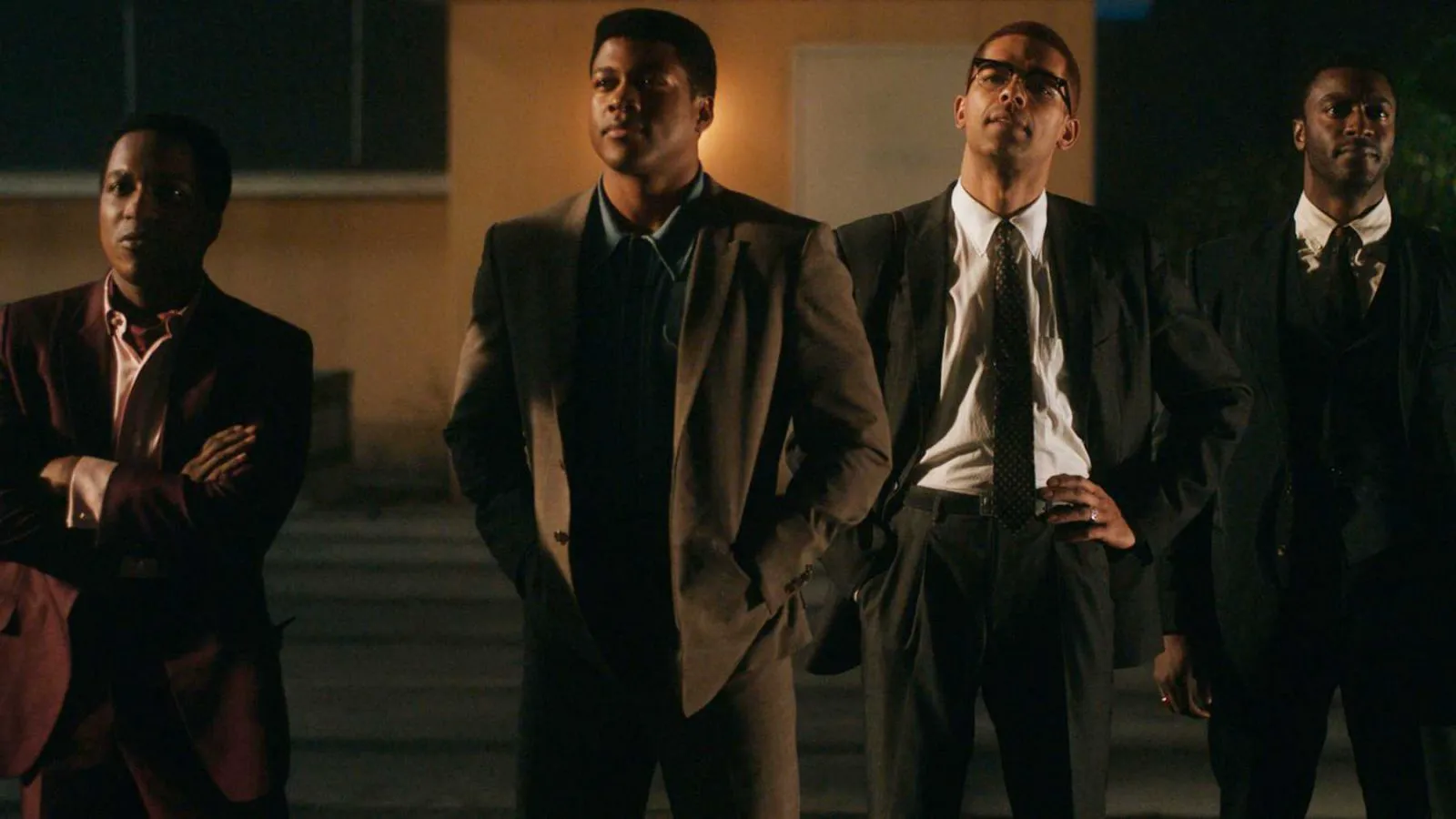One Night in Miami: A Powerful Debut by Regina King
Regina King, the acclaimed actress and Oscar winner, makes her directorial debut with “One Night in Miami.” The film transports us to February 1964, where a 22-year-old Cassius Clay (later known as Muhammad Ali) has just clinched the world heavyweight title. Instead of a glitzy celebration, he gathers with his close friends in a modest motel room for an intimate after-party. This is no ordinary gathering; Clay is joined by the influential activist Malcolm X, football star Jim Brown, and the soulful singer Sam Cooke. Together, they engage in passionate debates about their roles in society, the impending end of racial segregation in the United States, and the extent of their support and involvement in the burgeoning civil rights movement.
The Key Players
- Malcolm X (Kingsley Ben-Adir): A spiritual leader within the American Muslim community and a prominent advocate for African American rights, alongside Martin Luther King Jr. Constantly under FBI surveillance, he faces distrust from his own colleagues and contemplates his departure, which could have significant repercussions. With little to lose, his only hope is to persuade like-minded individuals to condemn racist authorities and end segregation.
- Jim Brown (Aldis Hodge): A football icon admired by both black and white communities. The NFL showers him with lucrative contracts, seemingly validating his success. However, a visit to an old friend’s plantation, where he is served lemonade by a white girl, shatters his illusion. He is then subjected to a racial slur by his friend, the elderly Carlton (played by Beau Bridges), reminding him of his perceived inferiority. Brown is ready to relinquish his success, tired of subservience.
- Sam Cooke (Leslie Odom Jr.): A successful singer-songwriter, weary of performing for wealthy white audiences, despite the financial rewards. He creates iconic songs, even covered by the Rolling Stones. However, unlike Bob Dylan, he is hesitant to openly support the civil rights movement, seemingly prioritizing his financial independence over activism. The film’s central conflict arises from a heated exchange between Cooke and Malcolm X, who vehemently rejects Cooke’s complacency and perceived blindness to the injustices in the country.

- Cassius Clay (Eli Goree): A boxing champion new to the world stage. Malcolm attempts to persuade him to embrace Islam, which would lead to his name change to Muhammad Ali. However, the intense discussions in the motel and on its roof make Clay question the necessity of religious intervention. He had envisioned a different kind of celebration before his spiritual journey, one filled with women and alcohol.
King’s Directorial Vision
Regina King, known for her work on television series like “Shameless” and “This Is Us,” establishes herself as a filmmaker with staying power. Eschewing auteur ego, she focuses on the underlying tensions and individual struggles of her characters, who grapple with their fears and the potential consequences of their actions. Similar to another theatrical project of 2020, “Ma Rainey’s Black Bottom,” the film documents the burdens faced by African Americans who have achieved success in a white-dominated society, with a sense of urgency and meticulous detail.
A Chamber Drama with Historical Resonance
Kemp Powers, the screenwriter and author of the original play (also a co-director of Pixar’s “Soul”), explores these historical figures in an intimate setting, revealing their personal anxieties and reflections. Behind closed doors, jealousy, ambition, and contrasting visions of the future collide. The characters engage in heated debates, share laughter, and drink whiskey before Clay’s initiation. In a poignant and understated finale, the four men question their contributions to the revolution. Are they the “small axe” from Bob Marley’s song (and the recent “Small Axe” series)? Have they done enough to challenge the “big tree” of oppression?
While not all of them were on the front lines of protests, they are all integral parts of a larger movement that reshaped history. In an era of civil unrest, King and her team engage in a thought-provoking dialogue with the audience, highlighting the importance of unity in the face of crisis. Understanding the urgency of the moment, King offers a powerful message, encapsulated in the film’s closing song: speak now.